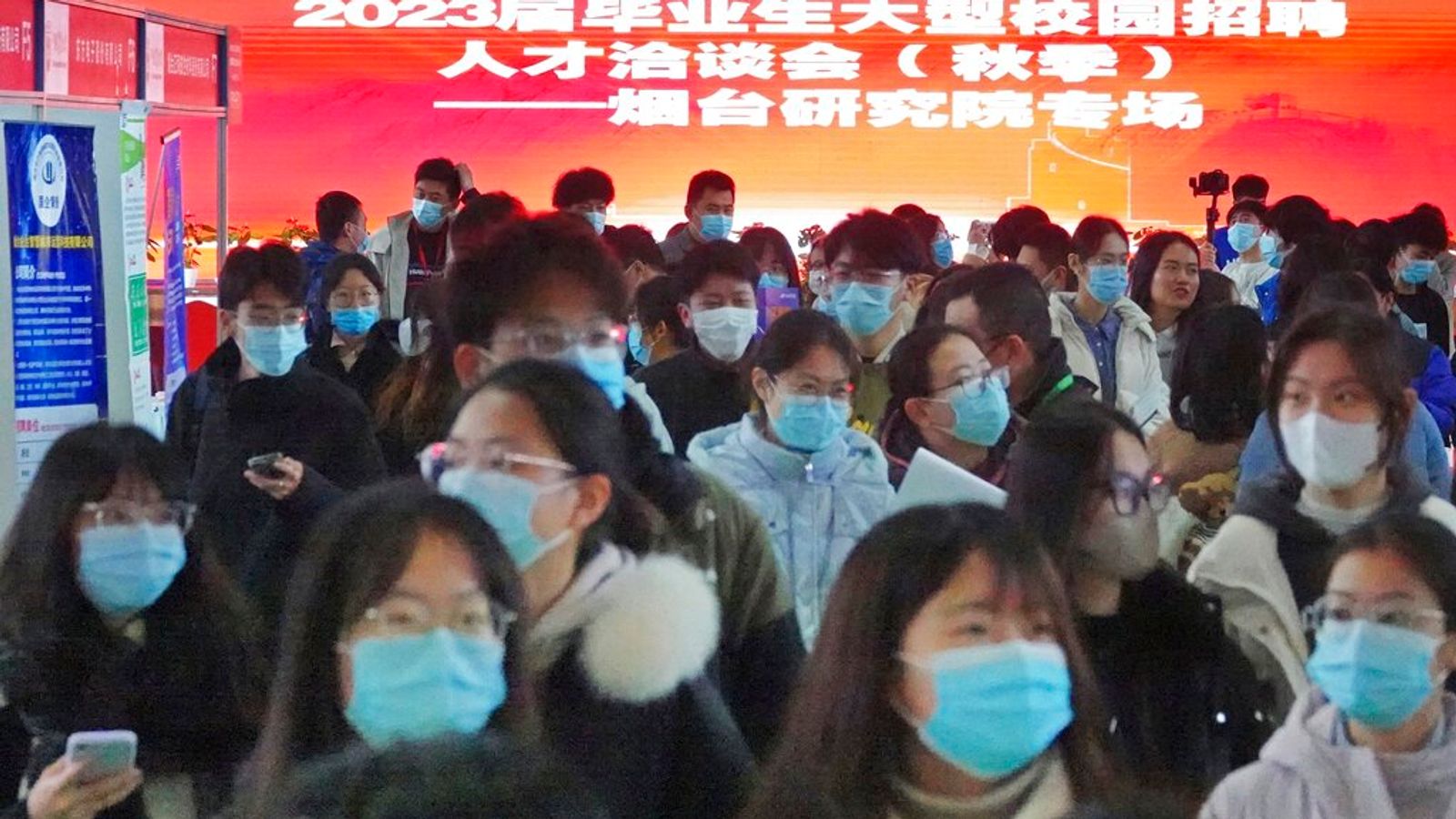There was no prior suggestion that today’s set of economic data would be any different in make up than previous months; indeed figures for retail sales, industrial production and employment were all there as expected.
But there was one set of data notably missing, and it was one that many observers had been specifically looking out for.
In fact, China announced today that for the foreseeable future it will not be releasing the numbers for youth unemployment (the percentage of people between 16-24 out of work).
It is a notable admission because these are the exact figures that have been soaring in recent months, reaching record highs of 21.3% in June, nearly doubling since the start of 2019.
China’s Bureau for National Statistics said the admission was due to “complexities” in the numbers that need to be ironed out. Economic and social changes, it said, is forcing it to reassess its methodology.
But it has raised eyebrows and sparked concern about data transparency in the world’s second-largest economy.
Indeed, the reality is that China’s economy is currently facing its biggest challenge in many years.
Read more:
Worldwide effects of China’s economic headache
Fears over deflation in China as prices plummet
China’s zero-COVID policy blamed as economy contracts
Just last week it was announced that prices are actually now falling here, sparking fears of deflation, exports and import numbers sank dramatically year-on-year in July and growth across multiple metrics is sluggish and below expectations at best.
In fact, Chinese people are being actively encouraged not to talk about deflation.
But youth unemployment poses arguably a more acute challenge for this one party state.
Please use Chrome browser for a more accessible video player
Indeed, this generation of young people have grown up amidst an economic boom, believing that they will go on to have a better life than their parents.
Economic success and stability is at the heart of the leading Communist Party ‘social contract’ with its people, if young people feel they can no longer get on in life, that is a huge challenge.
But the causes are not easily fixed, a rising number of college graduates, an increasingly educated population who do not want to take rural or manual jobs and an economy left struggling after the COVID pandemic means there is simply a mismatch between the number of good jobs and the number of people who want them.
The reality too is that these figures only cover those in urban areas and not rural, so the issue may be even more acute than it seems.
There is a growing feeling of unease and disillusionment amongst many young people in China who feel they have worked hard, and that is a very serious issue for the government here that won’t be fixed by obscuring the figures.








